“Customers are in the midst of a trust crisis,” Salesforce CMO Stephanie Buscemi recently observed. Citing a Salesforce study, she said “54% of customers don’t think companies operate with their best interests in mind.”
Richard Edelman made a similar observation after the Edelman 2019 Brand Trust Survey published earlier this year:
“Eighty-one percent say, ‘Trust in brands is an important part of my purchase behavior,’ but only one-third of people say they trust the brands that they buy. So that’s an incredible opportunity for brands...
“Trust really matters for brands now. I think it’s a completely new moment for brands where it’s not enough for brands to communicate. You actually have to make a difference.”
The Edelman Survey found that 41% of consumers don’t trust brands’ marketing communications to be accurate and truthful. They also found that 53% of people expect brands to get involved in at least one social issue not directly related to the business, yet 56% say brands overuse social issues “as marketing ploys.”
Brand trust seems to have it a new low. Yet, I think that the emphasis on this as a “new moment for brands” misses how long it can take for brands to build up trust. This isn’t an overnight fix. Brand trust doesn’t change with one campaign, one promotion, one touchpoint, or one social stance. Brands have to earn trust over time.
As Will Rogers famously put it, “it takes a lifetime to build a good reputation, but you can lose it in a minute.”
A big thanks to Bethany Johnson for suggesting this cartoon idea.
Here are a few related cartoons I’ve drawn over the years.
“Brand Reputation” October 2015
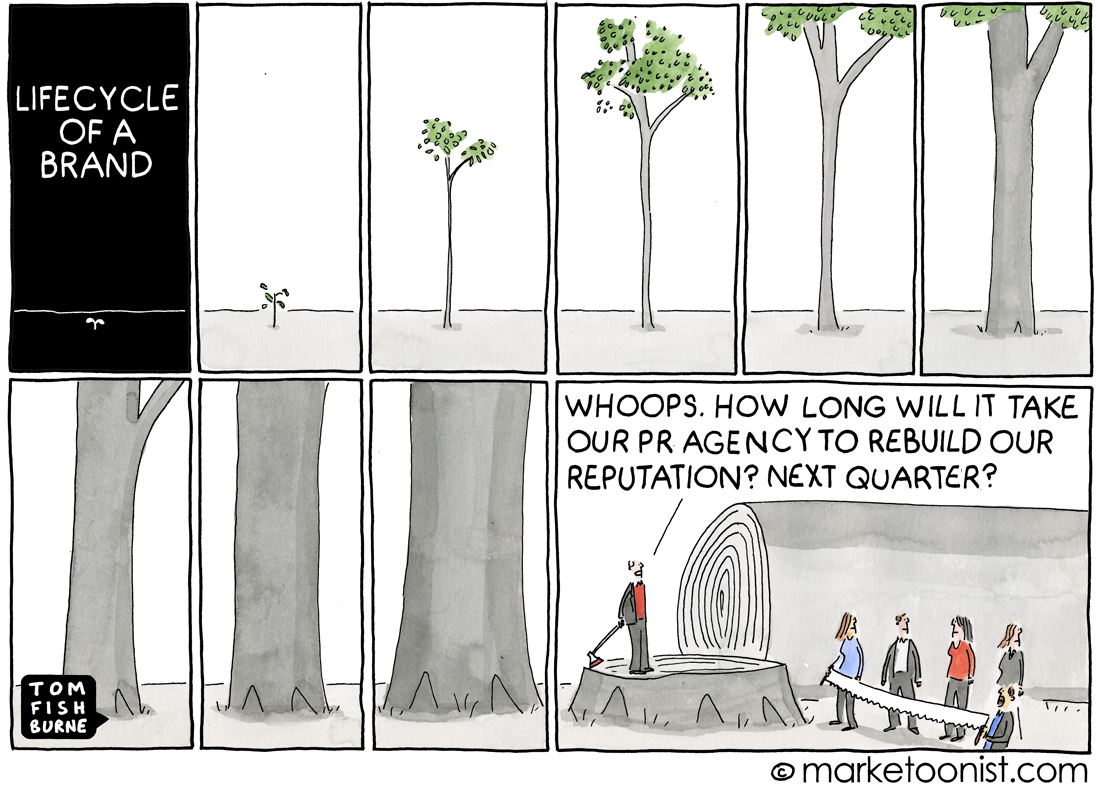
“Data, Privacy, and Brand Trust” December 2018
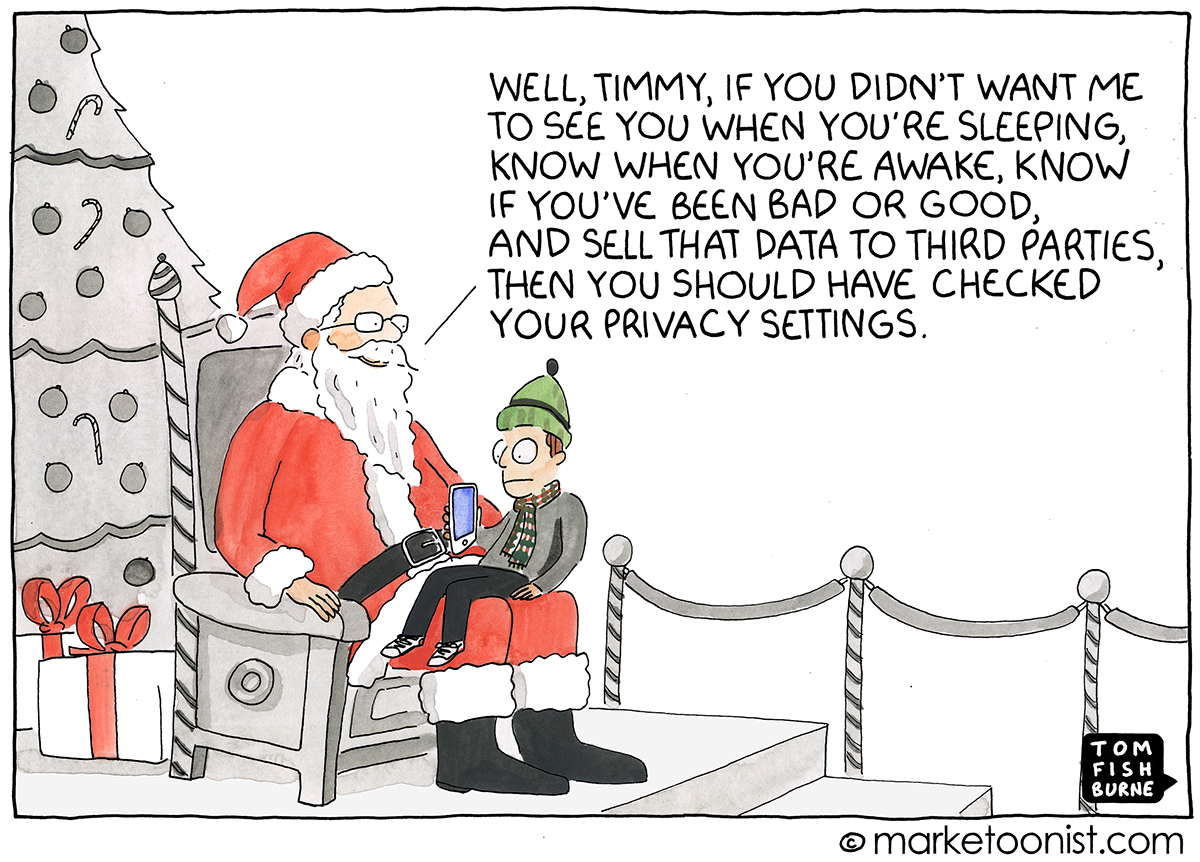
“Fake Authenticity” August 2018
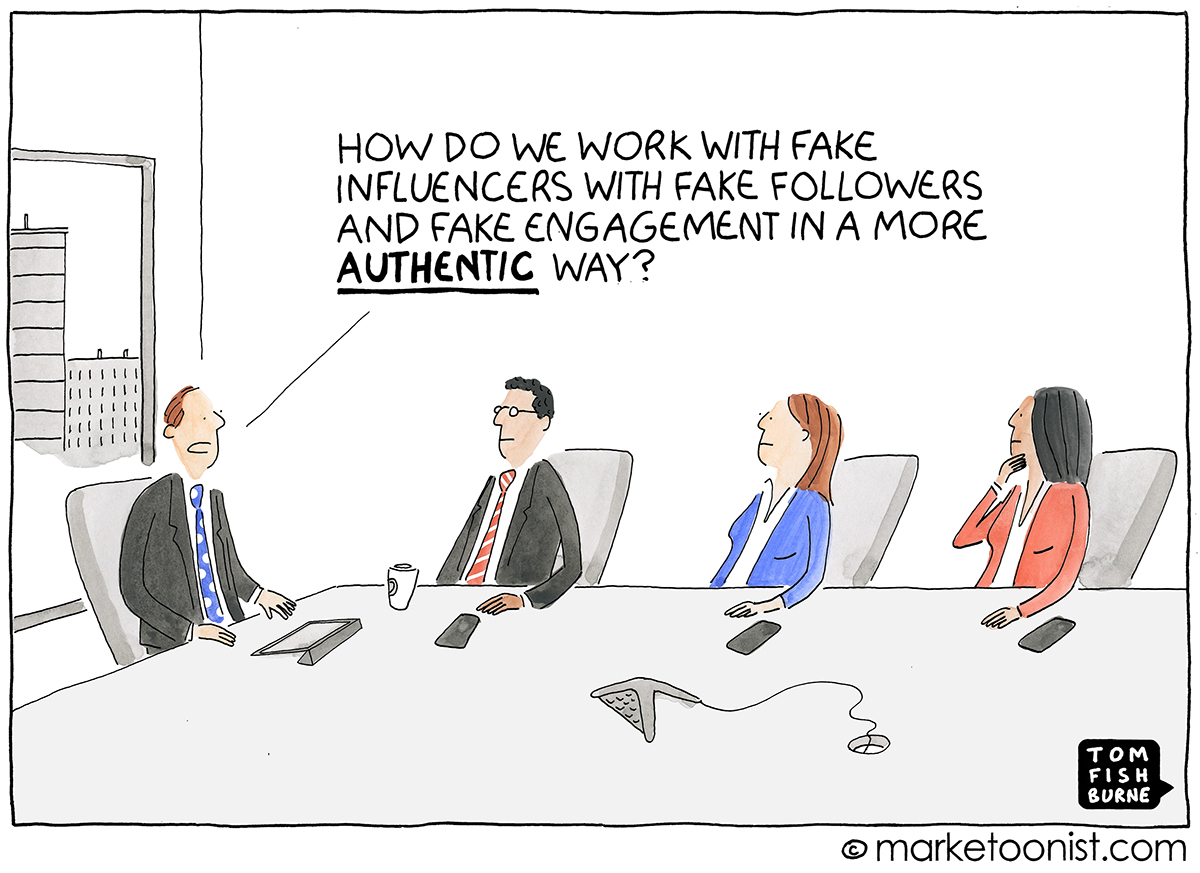
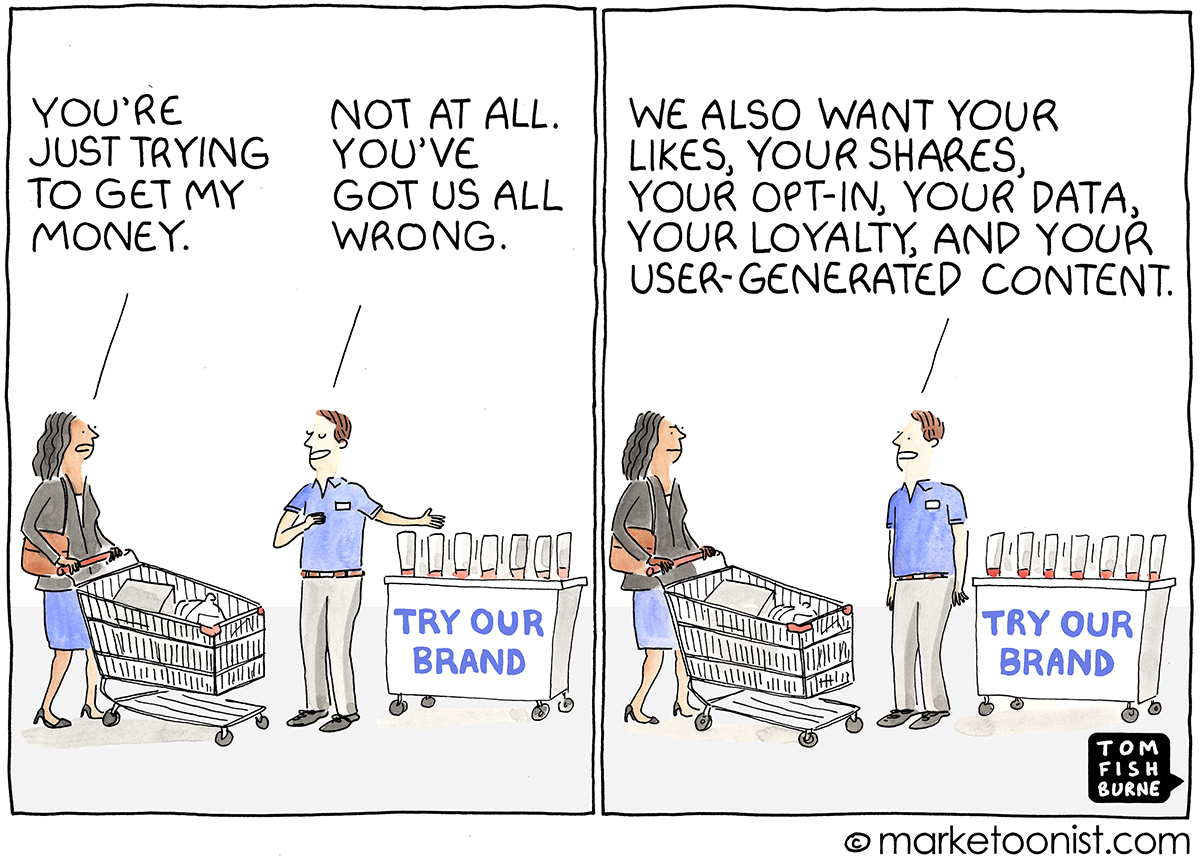
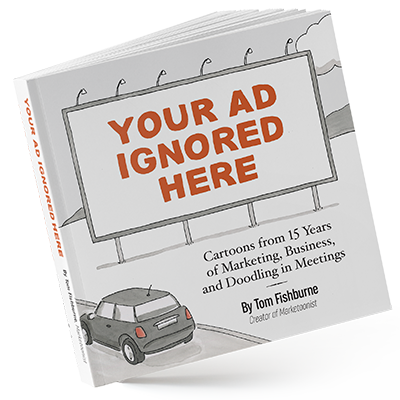
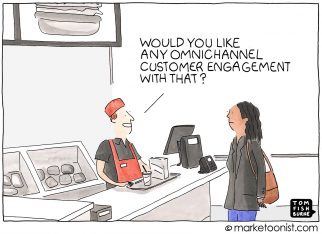
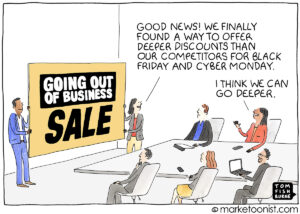
Stephen says
“Citing a Salesforce study, she said, “54% of customers don’t think companies operate with their best interests in mind.”
When, in the history of commerce, has any business entity acted with any other priority than in their own best interests? If the best interests of the customer happen to align, bonus! But it’s the height of naiveté to live with the delusion that companies will ever place their customers’ needs above their own. Instead, they will take as much as they possibly can from their customer base while still looking good. And plenty cross that line. Apple, and pretty much all tech companies, I’m looking at you. Built-in obsolescence, software as a service and other subscription models, to name just a couple of issues, are always marketed as being in the customer’s best interest. But make no mistake, those models serve no one but the company. And why? Because it’s smart business. Companies exist to make money. Period. If they’re not making money, they’re not paying their people, and soon, there’ll be no more company. So, while it may be dissatisfying to us as consumers, it shouldn’t be a surprise and we shouldn’t pretend that we’re shocked that companies don’t have our best interests at heart. They have their own and they always will.
Allen Roberts says
‘Trust’ is a word used way too loosely, and way too often, with the result that someone says ‘trust me’ and you run for the hills.
Trust is earned by performance, over a long period, it can never be purchased, and is never simply given.
The best institutional example I know of is ‘The knowledge’ in London, outlined in this post. https://wp.me/p5fjXq-2l4
Love your work Tom.